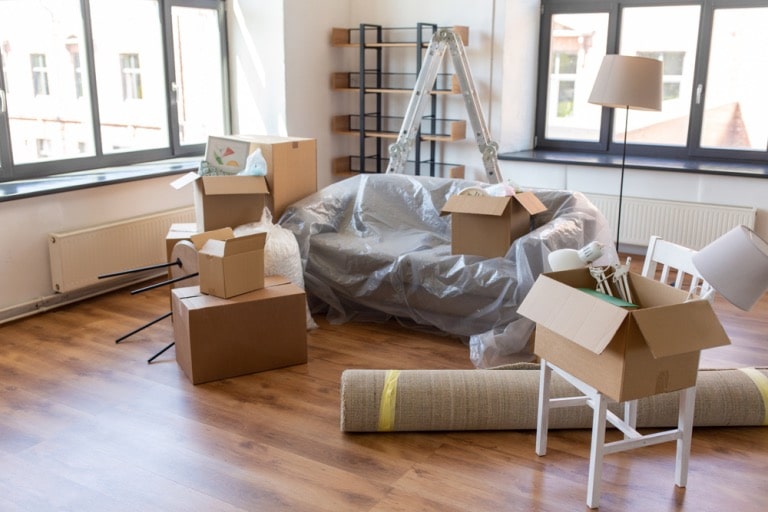Balancing Life Changes: How to Stay Organized During a Major Move?

With its sunny beaches and vibrant cities, Florida attracts people from all over, making it one of the most popular states for relocation. However, alongside the thrill of a new beginning, moving comes with its fair share of stress, especially when it comes to staying organized. Whether you’re moving to a bustling city like Miami or a quieter town like Naples, keeping everything on track can feel overwhelming.
The good news is that with the right strategies, you can navigate this life change smoothly. In this article, we’ll explore practical tips to help you stay organized during a major move in Florida, ensuring that your transition is as seamless as possible.
1. Start Early: The Key to a Stress-Free Move
One of the most crucial aspects of staying organized during a move is starting early. Procrastination can lead to unnecessary stress and last-minute chaos, making the moving process far more challenging than it needs to be. Begin by setting a clear timeline that outlines all the tasks you need to complete before the move. This timeline should include everything from packing and decluttering to notifying relevant parties of your address change.
When it comes to relocating, hiring a professional moving company can make a world of difference. Moving in Florida, with its unique climate and geographical challenges, requires expertise that professional movers can provide. They can handle the heavy lifting, transport your belongings safely, and even assist with packing if needed.
When choosing a moving company in Florida, it’s essential to do your research. Look for companies with positive reviews, proper licensing, and insurance to protect your belongings. Get quotes from multiple companies to ensure you’re getting a fair price, and don’t be afraid to ask questions about their services. By hiring a reliable moving company, you can rest assured that your belongings are in good hands.
2. Declutter and Downsize: Lighten Your Load
Moving provides the perfect opportunity to declutter and downsize your belongings. Over the years, it’s easy to accumulate items that no longer serve a purpose or hold sentimental value. Rather than packing up everything you own, take the time to sort through your belongings and decide what to keep, donate, sell, or discard.
Start with one room at a time and be honest with yourself about what you really need. Items that are broken, outdated, or haven’t been used in over a year are prime candidates for removal. Decluttering not only lightens your load but also reduces moving costs, as you’ll have fewer items to transport. Plus, entering your new home with only the things you truly need and love can make the space feel more organized and peaceful.
3. Pack an Essentials Box: Prepare for Your First Night
Amidst the hustle and bustle of moving, it’s easy to forget about the immediate necessities you’ll need upon arrival at your new home. This is where packing an essentials box comes in handy. An essentials box should contain everything you’ll need for your first night and day in your new home, allowing you to settle in comfortably without rummaging through boxes.
Items to include in your essentials box might include toiletries, a change of clothes, basic kitchen supplies, important documents, and any medications you may need. Additionally, consider packing a few comfort items, such as a favorite blanket or a set of clean sheets, to make your first night as cozy as possible. By having these essentials readily available, you can avoid the stress of searching for them in a sea of boxes and start enjoying your new space right away.
4. Notify Important Parties: Keep Everyone in the Loop
One of the often overlooked aspects of moving is the need to update your address with various organizations and individuals. This step is crucial to ensure that your life continues to run smoothly after the move. Start by making a list of all the places where your address is registered, including banks, insurance companies, utility providers, and subscription services.
Additionally, don’t forget to update your address with government agencies, such as the DMV and IRS, to avoid any disruptions or penalties. It’s also a good idea to inform your friends and family about your new address.
Sending out a mass email or even a simple text message can keep everyone in the loop and ensure that important correspondence, like holiday cards or packages, doesn’t get lost. By notifying all relevant parties in advance, you’ll save yourself from the hassle of dealing with missed bills, late fees, or lost mail after your move.
5. Expect the Unexpected: Stay Flexible During the Moving Process
No matter how well you plan, moving can still come with its fair share of surprises. From traffic delays to unexpected weather conditions, there are countless variables that can impact your move.
The key to managing these challenges is to stay flexible and adaptable. Build some extra time into your moving schedule to account for potential setbacks. This way, if something doesn’t go as planned, you won’t be thrown off course. It’s also important to have a backup plan for critical aspects of your move.
For example, if your moving company is delayed, have a contingency plan in place, such as temporarily storing your belongings or booking an extra night at a hotel. By anticipating potential obstacles and staying flexible, you can navigate the moving process with greater ease and confidence, even when things don’t go according to plan.
6. Plan Ahead for Your First Week: Make Your New House Feel Like Home
Once the move is complete, the work isn’t over. The first week in your new home is crucial for setting the tone and ensuring that you and your family settle in comfortably. Start by unpacking the essentials first, focusing on the rooms that will be used most frequently, such as the kitchen and bedrooms. This will help you quickly establish a sense of normalcy in your new space.
It’s also a good idea to plan for the small but important tasks that will make your new house feel like home. This might include setting up utilities, connecting internet services, and arranging furniture to suit your family’s needs. Additionally, take some time to explore your new neighborhood and familiarize yourself with local amenities, such as grocery stores, parks, and schools.
By planning ahead for these first few days, you’ll make the transition smoother and more enjoyable, allowing you to start enjoying your new home right away. Moving is undeniably one of life’s most significant and challenging events, but with the right approach, it doesn’t have to be overwhelming.
By following these practical tips—starting early, hiring a reliable moving company, decluttering, staying organized, and involving your family—you can maintain control over the process and ensure that your move is as stress-free as possible. Remember, staying organized isn’t just about the physical act of moving your belongings; it’s about creating a plan that allows you to manage all aspects of the move, from logistics to emotions.





